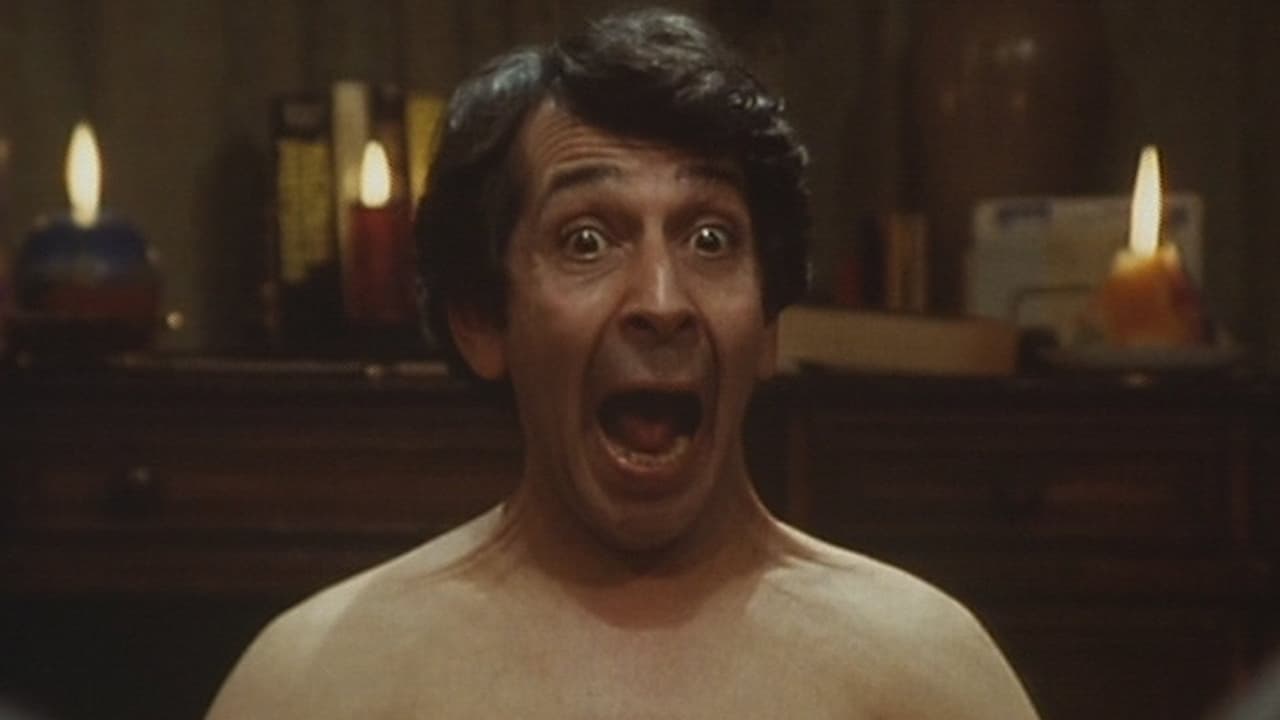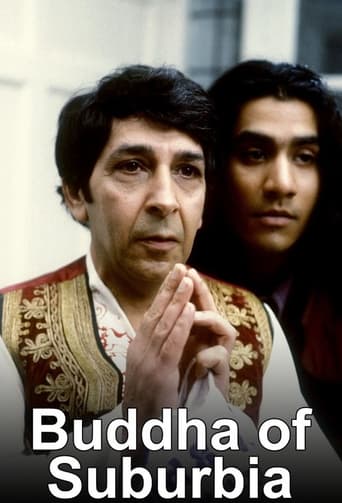

I am coming out fighting here because this film was so well shot and so well cast that I am twice as angry about its de-evolution than I would have been with a lesser work. Without revealing too much of the plot, I can only say that part one of my 2 VHS set was an unnerving, unfolding delight of bizarre but plausible plot developments. The lead character was suitably naif-like but also intelligent and very very open. The events that he is rapidly forced to come to terms with are the separation of his parents, the culture shock when his Pakistani roots collide with a complete breakdown of English straitlaced society in the sixties, his father's dubious transformation into the revered Buddha of Suburbia, and the turning of his cousin into a feminist militant as his best friend suddenly becomes an icon of the burgeoning punk movement in the seventies. Among other things.What made me so angry was the amount of detailed work each actor put into creating and establishing their characters in the first part, only to have the whole thing devolve into very bad porn episodes in the second part, far too many to justify plot development, and far too explicit to even seem erotic. My biggest pet peeve is when directors let their private fetishes interfere with the truth of their movie, and this to me was a supreme example.I felt a bit like I'd been invited to a party of very clever, funny strangers, only to have the doors locked and the guests not allowed to interact, and all of us forced to watch bad seventies sexploitation films instead. What an insult to the hard work of these amazing actors! Why not just make a cheeseball flick to begin with? And why cast a great lead character who can actually act, and then cut away from him whenever he is building up to a great performance? I almost felt as if he too was growing tired of the endless sex scenes where all he did was lie there pumping his pelvis for yet another breathy naked actress.Bottom line - Part One is minor genius, Part Two is second tier soap opera perversion. I know the book is quite explicit, but I felt that these fine actors were as exploited in real life as their characters were in the movie, and it made me quite angry and very uncomfortable. Only John Waters can pull off such a dubious degrading of actors and plot and have it seem artistic. My suggestion is to only watch the first part, toss the second in the proverbial rubbish heap, and you will love the Buddha forever. Score A+F=0
... View MoreHaving read the novel almost a decade ago and not quite understanding it (probably too young), I finally decided to pick up this BBC series on video. I think i understood it better being 10 years wiser.The series is firmly cemented on the wonderful actor Naveen Andrews (now best known for the ABC series "Lost"). Taking place over a span of a decade, the early 70's to the 80's, when Thatcher came to power, the series is epic in scope. Showcasing the rising tide of the new young Indo-Brits and their dreams, aspirations and longing to belong to a culture of their own (instead of the tradition bound or anglo majority).The series is filled with race relations, morality, social issues and political comment. The character of Karim is in almost every frame of the series. And all of the other characters are seen interplaying with Karim.The most interesting storyline is the at times comical, but ultimately bitter subplot involving the Indian groom Changez and his reluctant British bride Jamila. Wonderful performance by Harish Patel.At times the series does start to meander into meaningless territory, such as the plot involving Charly and the punk rock band. But again, the great acting by Andrews pulls the story back to the forefront.I can compare this series to a very long movie...an excellent 4 hours spent on a great British serial.And one more thing, the soundtrack is a major highlight. Great tunes from the 70's. Not to be missed by Naveen Andrews fans.
... View MoreHaving enjoyed the quirky little "My Beautiful Laundrette," I was most disappointed by "The Buddha of Suburbia." The film is a disaster from beginning to end, and has the feeling that length was the sole purpose, as one sometimes feels when reading less-inspired 19th-century novels whose authors were paid by the word.There are nearly an hour's worth of shots of people walking up stairs, crossing streets, and standing silently which would have been edited by any other director. There is truly no reason in the world for it to have gone over two hours. Furthermore, the production is shoddy. Lighting is bad, lines are mumbled, blocking awkward.There is no "plot" per se, no shape to this massive mess. There are clues that it goes from the beginning to the end of the 70s, yet the events feel more like a three-year span.The subject simply appears to be the myriad ways in which the people in young Karim's life find to ruin their happiness. Their confusions range from hopeless dedication to old-country ways, (arranged marriages), to faddish spirituality, the constriction of "liberating" politics, disposable families, drugs, etc.With a theme like this, we want a character who struggles against the tides of spiritual emptiness. Karim's mother and brother might have fit the bill as the only characters with common sense, but they are virtually ignored. Instead, the main character is Karim, who drifts helplessly on the currents that mangle the lives of those close to him. Life simply happens to Karim, everything that transpires is the result of someone else's plans. Only in the latter half of the film does he actually have any kind of goal at all (becoming an actor).Never does he ever rise beyond being more than a helpless figure trying to be "nice," whether that means being a peacemaker, a lover, or a friend, or trying all three to find that none of them work. His relationships happen to him, and when they go south, he is unable do much more than voice a vague sense of complaint.Now characters like this have excellent potential; consider "The Stranger," "Zelig," "The World According to Garp," or "Being There." But Karim is so dedicated to helplessness that our sympathies are never engaged for him.And without a sympathetic character, a memorable line of dialogue, or even a sense of purpose, "The Buddha of Suburbia" is a waste.
... View MoreNaveen Andrews, probably best known to American audiences as the Indian bomb expert in "The English Patient," plays Karim, a young London high schooler in the 1970's. Karim is caught between loyalties to his mother and his father, who are going through a messy split. Susan Fleetwood is notable as the father's mistress, whose son might or might not be the hottest thing to hit the music scene since Bowie.The amazing thing about "Buddha..." is the depth of characterization. The secondary characters, and there are at least fifteen, all have their own struggles and histories. Karim floats through his world, trying to be everything to each character -- a friend, a confidant, a lover, a good son, a loyal nephew -- and finds that he can't satisfy everyone. Pay close attention to each story, such as the arranged marriage between Jamila and Changez. It's a comedy of errors orchestrated by her traditional parents that's wonderfully out-of-place for the characters who see themselves liberated members of the "me" generation.Though this is a mini-series rather than a film, the production values are pretty good. It would be a good idea to rent it for two nights, since it's long. And since it was made for TV anyway, the small screen is just right. (It was shown on a big screen at the San Francisco Gay & Lesbain film festival.)
... View More